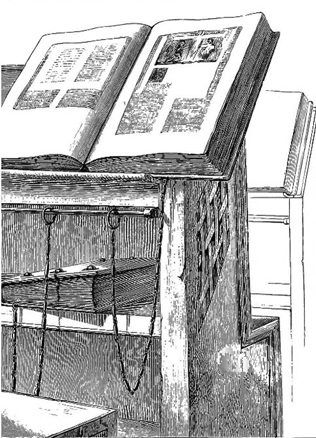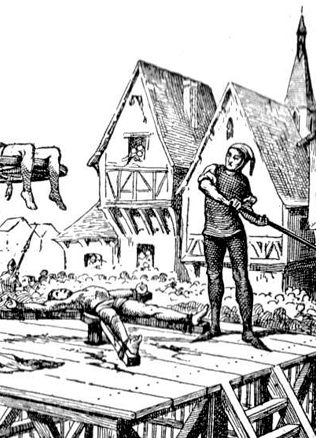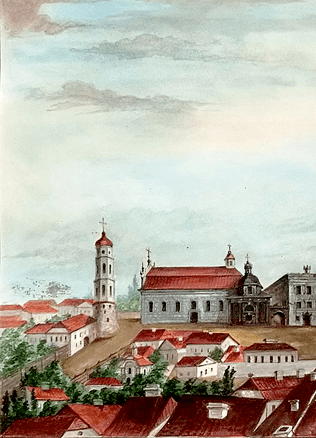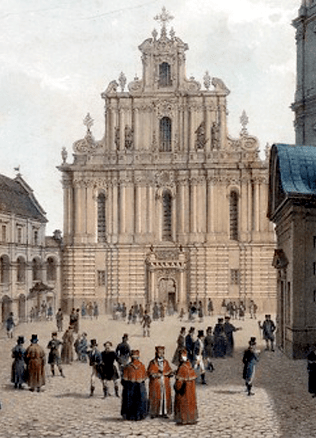“Master Dougird who Composes Poetry”
Samuel Dougird is of noble descent, coming from the low-rank nobility based in South-eastern Lithuania. The small Dougird family manor of Žižma (the name is derived from the river Žižma, tributary of Gauja) was located near the river Gauja (the present territory of Belarus), the right tribute of the Nemunas. Very likely, it is here that the origins of the poet calling himself “Samuel Dougird from Pagaujis” should be traced to. The documents of the mid-17th century mention an elderly Samuel Dougird and his two sons. It is highly probable that this is the poet in question, rather than his namesake. Unfortunately, the information about Samuel Dougird’s’ life is scarce, if any at all. He must have been born at the end of the 16th century. Having married a certain Grigarawiczowa of noble origin, he became a widower in 1624, with small children to raise. The evidence about this personal bereavement can be found in the dedication written by Samuel Dougird to his sister-in-law Kristyna Grigarawiczowa-Ruckowna. The dedication was published in his first booklet entitled “The story about Susanna and a mother who was tortured by Antiochus together with her seven sons.” As the title suggests, the booklet is dedicated to the famous Biblical women. It was published in 1624 in Lubcha by the Grand Duchy of Lithuania Calvinist printer Piotr Blastus Kmita, often called a servant of Krzysztof II Radziwiłł. The same printing-house published two other booklets by Samuel Dougird. One of them was A Story about Joseph, a versed story based on the Book of Genesis of the Old Testament (1625), and the other, the most significant by far – a versed history of the Grand Duchy of Lithuania, entitled Genealogia albo Krotkie opisanie Wielkich Ksiazat Litewskich i ich wielkich a mezhnych spraw wojennych (Genealogy, or a Short Description of the Grand Dukes of Lithuania and their Great and Virtuous Martial Deeds). The Genealogy was based on Maciej Stryjkowski’s historical work, which signified an emerging pattern to link the personal glory of the Radziwiłł to that of the heroic grand dukes. This Genealogy was revised and re-published by Samuel Dougird from Pagaujis (1626).
Sounding rhyme and questionable facts
Genealogy was not an original piece of literature. Actually, it was a free repetition of one part (Chapter VIII) of the historical poem Herald of Virtue, composed by Maciej Stryjkowski in 1574.
The abovementioned chapter of the Genealogy is the oldest printed brief history of the Grand Duchy of Lithuania. Samuel Dougird presented a smoother versification of the same chapter. He also contributed with his own interpretation of certain details. He repeats Maciej Stryjkowski’s narration about the origin of Lithuanians, deriving their descent from ancient Germans and Romans (Palemonas). However, he emphasizes the Lithuanianness of the Grand Duchy of Lithuania. The original places, in which Maciej Stryjkowski speaks of “Lithuanians and Ruthenians,” are replaced by our poet with merely “Lithuanians.”
Samauel Dougird rehabilitates Vilnius palatine Jan Dougird, who took part in the conspiracy against Sigismund Kęstutaitis. Contrary to the impression conveyed in Maciej Stryjkowski’s poem, Samuel Dougird highlights the ruthlessness of the afore mentioned ruler. To make it even more plausible, he introduces an additional detail demonizing Sigismund Kęstutaitis. According to him, the bear tamed by the ruler was allegedly tearing people to pieces.
Beyond all doubt, this must be the most macabre portrayal of Sigismund Kestutaitis in the whole history of Lithuanian literature.
The emergence of such a portrayal can be interpreted in two possible ways. On the one hand, the poet thought highly of the Vilnius palatine, considering him to be his predecessor. Such self-identification with prominent noblemen of the past was not exceptional, since it was characteristic of the whole nobility within the Grand Duchy of Lithuania to search for their “honourable roots” in the past.
On the other hand, it was typical of the Lithuanian and Polish Calvinists to focus on a fight against a tyrannical ruler. A great many Grand Duchy of Lithuania supporters of Reformation (among them Janusz Radziwiłł, brother of Krzysztofer Radziwiłł II) took part in the so-called Zebrzydowski‘s rebellion (Polish rokosz Zebrzydowskiego) (1606–1607 ) against King King Sigismund III Vaza, a supporter of Counter Reformation, cherishing political aspirations to introduce absolutism.
Samuel Dougird was a better poet than Maciej Stryjkowski but a poor historian.
In the Genealogy he repeated the historical mistakes made by his predecessor, even those which had been corrected by Stryjkowski in his literary work Chronicles (1582). Moreover, the very choice of relevant literary sources is also quite poor, with only the poem Herald of Virtue and the translation into Polish of the Chronicles by the historian and Bishop of Warmia Martin Kromer (1611) chosen by Dougird as points of reference.
Poet of the Radziwiłł court
From the historiographical point of view, the foreword of the poem with a dedication to Krzysztof Radziwiłł II, is of greater interest to researchers. In the foreword, the content of Genealogy is provided. Furthermore, the “mission” of the Radziwiłł dynasty starting with Pagan times is highlighted, with a special emphasis on the military and political merit of the Lithuanian Hetman Krzysztof Radziwiłł II and his father, Krzysztof Radziwiłł the Thunderbolt in the development of the state. Samuel Dougird does not yet have the nerve to declare out loud that the history of the Radziwiłł family is basically the summary of the history of the Grand Duchy of Lithuania. This will be declared in the second half of the 17th century by yet another Radziwiłł court writer, Samuel Przypkowski in the work Life of Bogusław Radziwiłł. It is worth remembering the historiographical programme formulated by Krzysztof Radziwiłł II. This information was later recorded “by word of mouth” by a man of letters working for the Duke, the courtier Piotr Kochlevski. At the heart of the Programme is the aggrandizement of the Grand Duchy of Lithuania and the Radziwiłł family.
Thus, the abovementioned foreword testifies to the close links with the Radziwiłł environment. Some of the details mentioned in the foreword describing the War of the Two Nations against Swedish over Livonia (1600–1629) coincide with the military events recorded in the Hetman’s diary. For example, the narrative about a hasty retreat of Gustavus II Adolphus from Northern Lithuania in the autumn of 1625, having been notified of the arrival of troops led by Radziwiłł. The situation was far from favourable. The Swedish king made insidious attempts to disguise his intentions under the pretext of negotiations, by mobilizing the troops in Livonia. In July of 1625 the Swedish army invaded the territory of the Polish-Lithuanian Commonwealth. Contrary to almost everybody’s expectations, the Lithuanian Hetman Krzysztof Radziwiłł was not appointed by Sigismund Vasa appointed as the Great Hetman. Instead, a sixty-eight-year-old Vilnius palatine Lew Sapieha, with no experience as a military leader, was chosen by the King. The armed forces were fragmented, military activities due to internal competition of military leaders poorly coordinated. The Swedish invasion into the depth of Lithuania was rebuffed only thanks to fast and self-sacrificing decisions taken by the Radziwiłł. Having quickly mobilized the troops at his own expense, Radziwiłł succeeded in stopping the enemy onslaught. Radziwiłł sought to take over command of all the troops. Even though the public opinion was favourable to him, Sapieha’s ambitions and the King’s distrust turned out to be insurmountable barriers.
One might conclude by assuming that the publication of Genealogy (regardless of Samuel Dougird’s original intentions to “revise and update” the poem by Maciej Stryjkowski) might have been targeted at a propaganda effect.
This is also validated by the serious printing defects to be found in all the surviving copies of the booklet, testifying to a hasty process of work.
There is no evidence whether the poet took part in military actions. However, he received remuneration for the services provided to the Radziwiłł court (in all likelihood, not merely for the verses composed). The proof of that can be found in the surviving letter, written on 18 July 1627 by the Radziwiłł court official to the Duke: “Master Dougird, who composes poetry, was paid our 100 złoty.” This leads us to believe that the poet’s annual reward was 100 złoty. Could it be a substantial or insignificant amount? In 1620, the reward of a hussar, a warrior fighting in the elite troops, amounted to 120 złoty. It should be noted, though, that a hussar’s service was risky, the costs of the weaponry and a horse must have been quite substantial. In conclusion, Samuel Dougird should be literally regarded as the poet of the Radziwiłł court. Should it mean, though, that due to this fact we should lose interest in his creative work?
Literature: S. Daugirdas, Genealogija, arba Trumpas didžiųjų Lietuvos kunigaikščių ir jų didžių bei narsių karo žygių aprašymas, kadaise Motiejaus Strijkovskio sukurtas, o dabar atnaujintas ir vėl išleistas Samuelio Daugirdo iš Pagaujo, Vilnius, 2001.
Kęstutis Gudmantas



